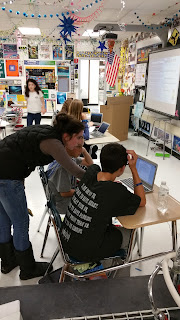 This quest is grounded in my teaching commitments, which have grown from my experiences as a woman, a teacher, an educational scholar, and a research scientist. The challenge that fast approaches this quest is centered on the fact that feminism fears a pervasiveness of othering, the socializing of women and men in groups of oppressors and the oppressed, and the fear of kyriarchy theory as the norm within our society. The word “kyriarchy” itself is a neologism coined by Elisabeth Schussler Fiorenza in 1992 to describe her theory of interconnected, interacting, and self-extending systems of domination and submission, in which a single individual might be oppressed in some relationships and privileged in others (Tuohy, 2005).
This quest is grounded in my teaching commitments, which have grown from my experiences as a woman, a teacher, an educational scholar, and a research scientist. The challenge that fast approaches this quest is centered on the fact that feminism fears a pervasiveness of othering, the socializing of women and men in groups of oppressors and the oppressed, and the fear of kyriarchy theory as the norm within our society. The word “kyriarchy” itself is a neologism coined by Elisabeth Schussler Fiorenza in 1992 to describe her theory of interconnected, interacting, and self-extending systems of domination and submission, in which a single individual might be oppressed in some relationships and privileged in others (Tuohy, 2005). The fear continues as feminism recognizes that a totalizing theory that encompasses all feminist inquiries in this subject matter may become the norm with those with relative power tending to remain in power, while those without tend to remain disenfranchised. Feminism challenges the “we” in feminist empiricism and the feminist standpoint theory by clarifying the notion that the implication of paradoxical tendencies in today’s society allows for each individual to seek their own personal knowledge-seeking road within the scientific world. It is my belief that in this feminist era there is a movement for social justice that may offer the freedom to formulate new ways of thinking about science and new ways of doing science.
